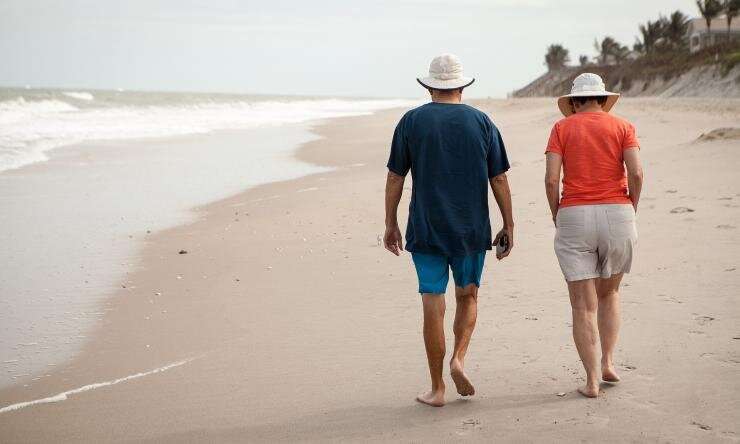Long-term traveling for the cold season? Here's what should be on your medical checklist

Each year, falling temperatures in the north are an indicator for many travelers to begin their migration to warmer climates down south. Isabel Valdez, physician assistant and assistant professor of medicine at Baylor College of Medicine, provides a medical checklist for snowbirds to stay healthy during their trek and at their destination.
"Snowbirds should have their medical checklists completed a month before they leave for their long-term destination," Valdez said. "The No. 1 thing I recommend is to establish care with an additional primary care doctor at their long-term destination in the fall and winter who can coordinate with their home doctor."
Pharmacies and medications
Before traveling, snowbirds should have a fresh 90-day supply of their necessary medications. If their stay is longer than three months, snowbirds can utilize local, national or mail-order pharmacies to ensure they have enough supply. Valdez warns that shipment times may be elongated due to the holiday season, so ensuring a brick-and-mortar pharmacy is able to receive prescriptions from their physicians can prevent delays.
Snowbirds should travel with medications they take daily, such as antidepressants or medications for chronic illnesses like diabetes, high blood pressure or thyroid conditions. Be sure to pack extra prescription creams, inhalers, insulin pens or vials and keep them close by. Blood pressure machines and glucometers, along with needles, syringes and lancets, also should be available during their journey and at their destinations.
Valdez also emphasizes the importance of ensuring all relevant medical devices and accessories are packed for travel. If driving to a destination, snowbirds should have an emergency source of power, such as power packs and spare batteries, for devices such as CPAP machines, nebulizing machines and oxygen delivery devices.
Doctors
In addition to a primary physician, snowbirds should also check if visits with specialists will be necessary at their destinations. To find a reputable primary care physician, Valdez advises checking with insurance providers and friends or family at their destination and ensuring they can communicate with their doctor back at home.
"Some medical conditions that require the care of a specialist may only require an appointment once or twice a year," Valdez said. "You might only need to visit the specialist in your home state but checking with your doctor at home and with your insurance providers to find a specialist in your network at your travel destination is a good idea."
Documents
Medical records should reflect any new medications, procedures, conditions or allergies and should be easily accessible by the physician at their destination via an electronic record. If snowbirds have doctors that share the same electronic medical record software program, this can relieve the burden from the patient with the information exchange. Regardless, Valdez advises traveling with a physical or electronic copy like those available in a patient portal.
Valdez also advises snowbirds to send the physicians at their destinations a copy of their medical power of attorney and to have an updated will, in case of life-changing emergencies.
"While we hope we never have to use it, a medical power of attorney is something that physicians want to make sure is on record so that we can make the best decisions for our patients and their loved ones," Valdez said.
Procedures
Valdez suggests scheduling planned surgeries or procedures three months before travel to allow ample time for recovery and proper follow-ups. Emergency procedures should be taken seriously and snowbirds should extend their stay or delay their travels to stay vigilant about their health.
"First and foremost, the most important thing that we want to keep in mind is patient safety," Valdez said. "There could be risks involved with travel shortly after procedures, so you don't want to put yourself in any danger until you receive a clean bill of health from your provider."



















